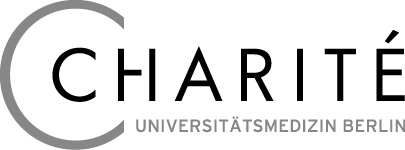Our Consortium
DIGIPREDICT brings together three members from academia, two large R&D institutes, two hospitals, two high-tech SMEs and a management and communication SME from five European countries.
Between them, they address all the key challenges of the project by covering a wide range of disciplines including informatics (machine learning), engineering (embedded systems, sensors and wearables), medical science (organ-on-chip systems, digital medicine), translational science (clinical studies and research), ethical and regulatory frameworks. All consortium members have outstanding records of scientific excellence, from early and experienced post-docs to several young group leaders and to well-established leaders of large research groups.
DIGIPREDICT is a direct offspring of the thriving community created around the Health EU FET Flagship initiative and initiated by the Health EU board members EPFL, UTWENTE, ETHZ, and Charité. Hence, DIGIPREDICT can reach out to the established network of the Health EU initiative, grouping 110 partners and additional 80 stakeholders from large industries, patient and professional organizations, hospitals, insurance companies, regulatory bodies and innovative SME’s and investors.
DIGIPREDICT: a multi-faceted interdisciplinary consortium
Role in the project
Nanoelectronic Devices Laboratory (NANOLAB) : silicon micro/nano‐electronics with special emphasis on the technology, design and modeling of low power nanoscale solid‐state devices and sensors and their integration into smart micro/nano‐systems. Embedded Systems Laboratory (ESL): system-level multi-objective design methods, optimization methodologies and tools for high-performance embedded systems and nano-scale Multi-Processor System-on-Chip (MPSoC) architectures targeting the Internet-of-Things (IoT) Era.
Machine Learning and Optimization Laboratory (MLO) ML on the edge Laboratory of Movement Analysis and Measurement (LMAM) wearable systems and algorithms for movement/activity detection and characterization, and interaction between long term activity and physiological time-series.
In addition, the EPFL Center for Intelligent Systems (CIS) provides its expertise to connect and support the scientific dimension of the project.
Role in the project
Development of Heart-on-Chip and Vessel-on-Chip models, two types of OoC, by integrating human stem cell-derived heart tissues and vascular tissues in microfluidic chips
Role in the project
Exploratory biomarkers
Role in the project
Implementation of CMOS-based microelectrode array (MEA) chips with design and fabricate a new type of chip consisting of flexible mesh-like electrode arrays to serve as a barrier measurement device for heart-on-chip and vasculature-on-chip.
Role in the project
Development of a custom chipset for the readout of the sensors developed by EPFL.
The Charité will be engaged in the project with the clinic for cardiothoracic surgery in close collaboration with the German Heart Center Berlin.
Role in the project
The Charité will be engaged in the project with the clinic for cardiothoracic surgery in close collaboration with the German Heart Center Berlin.
Role in the project
SCIPROM supports coordinators from the first project idea to the final report, in project set-up, negotiation, management and communication.
Ascilion’s strategy is to make full use of the company’s unique microneedle technology to develop a platform of diagnostic and test systems in areas of high unmet medical and industrial need where microneedles offer a clear advantage over existing products and technologies.
Role in the project
Design and manufacture chips with arrays of ultra-sharp, hollow microneedles in monocrystalline silicon using micro electro mechanical system (MEMS) technology.
Role in the project
Biofunctionalisation of selective biomarker nanosensors; networking, education activities and designing the public acceptance for swift clinical translation of digital twins.











